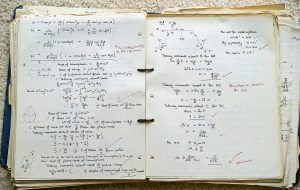 One part of my inquiry is about how to implement self-regulated learning skills and study strategies into my inquiry. Prior to research, I decided that there are three possible ways: a lecture on the skills, incorporating the skills into assignments, and as supportive workshops throughout a year. I am most curious about incorporating skills as assignments as I believe that you learn by doing, and what better way to learn skills than incorporate them into the curriculum. While I could not find any research that talked about the benefits of this method, Zepeda and Richey’s research outlined below is representative of incorporating skills into work in the sciences.
One part of my inquiry is about how to implement self-regulated learning skills and study strategies into my inquiry. Prior to research, I decided that there are three possible ways: a lecture on the skills, incorporating the skills into assignments, and as supportive workshops throughout a year. I am most curious about incorporating skills as assignments as I believe that you learn by doing, and what better way to learn skills than incorporate them into the curriculum. While I could not find any research that talked about the benefits of this method, Zepeda and Richey’s research outlined below is representative of incorporating skills into work in the sciences.
The research:
The authors investigated how an intervention to teach the self-regulated learning skills of planning, monitoring and evaluation to middle school science students would affect student metacognition, motivation, and learning. The intervention design was such that the experimental group received individual packages that taught them self-regulation skills in addition to physics practice problems, whereas the control only received physics practice problems. Both groups were given many packages over the course of the year, and without instruction from their teacher were asked to answer the problems to the best of their abilities. The results of the study found that students who participated in the experimental group reported an increased student declarative knowledge of metacognition, an increase in self-efficacy, and higher achievement in practice problems and further application of metacognitive skills.
What this means for my inquiry?
The results of this study are counter-intuitive: those with more practice did worse than those who had less practice. This only feeds my inquiry – teach students to study better, not harder. I don’t believe that practice makes perfect, but that efficient practice does. The students who reflected on their work, engaging their metacognition and employing their learned self-regulated skills, saw increases not only in academic achievement but also in self-efficacy.
As for implementation, I am now looking to incorporate planning, monitoring and evaluation into assignments to encourage these behaviors. In order for this to be effective, I need to teach students how to plan, monitor and evaluate their work in class to ensure that students understand what they are doing and why it is beneficial. I would like to incorporate this into practice problems as formative assessment, or even learning activities where students are practicing new skills with their peers in class.
Reference:
Zepeda, C. D., & Richey, J. E. (2015). Direct instruction of metacognition benefits adolescent science learning, transfer, and motivation: An in vivo study. Journal of Educational Psychology, 107(4), 954-970.
